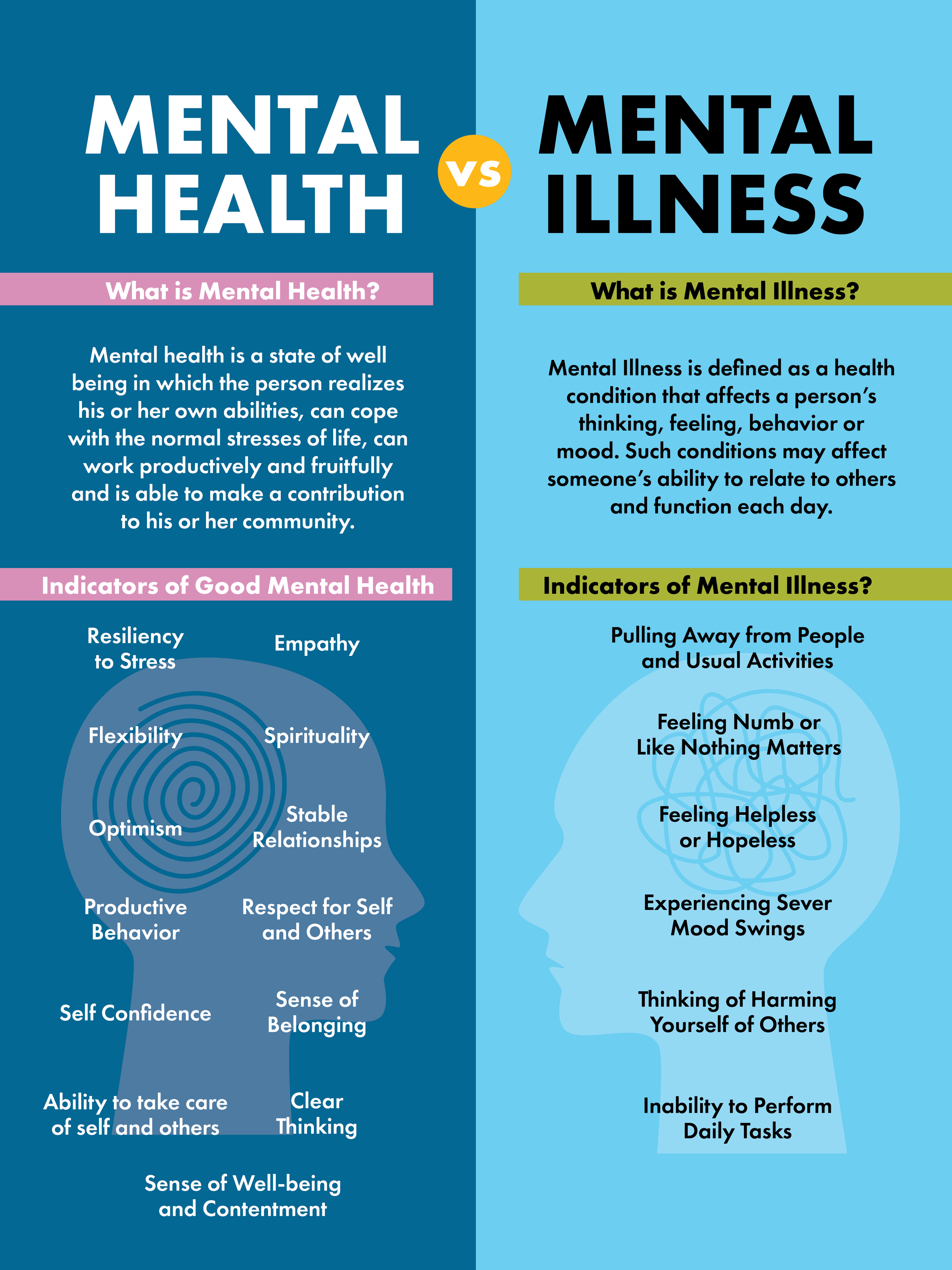What to Expect at an Inpatient Mental Health Facility for Recovery
What to Expect at an Inpatient Mental Health Facility for Recovery
Blog Article
Comprehensive Inpatient Mental Health And Wellness Services for Effective Treatment
Inpatient psychological health and wellness solutions stand for an essential component of the healthcare system, giving a organized and intensive environment for people experiencing extreme mental distress. These services use a multidisciplinary method, incorporating numerous evidence-based therapies to address the intricate requirements of clients. The efficiency of such comprehensive treatment prolongs past prompt stabilization; it also includes the transition to outpatient support, an essential phase typically forgot - inpatient mental health treatment. Discovering the subtleties of this continuum discloses significant implications for both individual recovery and broader psychological wellness outcomes. What variables really affect this transition, and how can we enhance its efficiency?
Understanding Inpatient Mental Health And Wellness Services
Inpatient psychological wellness services give crucial support for individuals experiencing serious mental distress that can not be taken care of properly in an outpatient setup. These services are designed to provide an intensive level of treatment in an organized atmosphere, often within a healthcare facility or specialized facility. People admitted to inpatient programs usually present severe signs, such as suicidal ideation, extreme depression, or psychosis, requiring round-the-clock surveillance and treatment.
The admission procedure normally entails a comprehensive analysis by mental wellness specialists, who review the individual's mindset, background, and instant requirements. When confessed, people take part in a range of therapeutic modalities customized to their specific demands, consisting of medication administration, private therapy, and team sessions. This holistic method intends to support the client's condition, advertise safety, and foster coping abilities.
Inpatient mental health and wellness solutions not just address immediate wellness problems yet also act as a bridge to continuous treatment. By giving a regulated environment, these solutions promote the development of therapy plans that can be proceeded in outpatient settings, thus making sure a continuum of care and enhancing long-term end results for individuals with intricate mental health and wellness needs.
Trick Parts of Effective Therapy
Efficient treatment in inpatient mental health services makes up a number of crucial parts that foster healing and stabilization. Most importantly, an extensive evaluation is important to recognize the individual's specific demands and obstacles. This evaluation informs the growth of a customized therapy strategy, which serves as a roadmap for intervention.
An additional crucial element is the multidisciplinary group strategy. Cooperation amongst psychoanalysts, psycho therapists, nurses, and social employees ensures that numerous perspectives contribute to the individual's care, enhancing the effectiveness of treatment. Evidence-based healing modalities, such as cognitive-behavioral therapy (CBT) and dialectical behavior modification (DBT), are also indispensable, offering structured methods that resolve maladaptive thought patterns and behavioral problems.

Finally, an emphasis on aftercare preparation is essential to make certain a smooth shift to outpatient services, reducing the danger of regression and promoting lasting health. These collective parts create a reliable treatment framework within inpatient psychological health services.
Benefits of Comprehensive Treatment

Comprehensive treatment in inpatient mental health solutions uses various advantages that dramatically boost individual results. Among the primary advantages is the holistic method to treatment, dealing with not just the psychological signs and symptoms however additionally the physical, social, and emotional demands of clients. This detailed analysis enables for tailored interventions that advertise general wellness.
Another benefit is the assimilation of multidisciplinary teams, which cultivates cooperation amongst health care professionals. This collaborative setting ensures that patients receive coordinated treatment, decreasing the risk of fragmented treatment and improving communication among caregivers. Moreover, thorough treatment facilitates connection of services, permitting seamless shifts from inpatient to outpatient settings, which is essential for long-lasting recovery.

Last but not least, the structured environment of thorough inpatient care provides a safe room for individuals to take part in therapeutic tasks, aiding them establish coping approaches and durability. Collectively, these advantages add to more reliable therapy and enhanced high quality of life for people experiencing psychological health situations.
Evidence-Based Healing Methods
In the world of mental health therapy, evidence-based healing approaches play an essential duty in ensuring that people obtain you can look here reliable and medically sustained treatments. These methods integrate the most effective available research with clinical knowledge and individual values, promoting a tailored therapy experience that attends to individual demands.
Cognitive Behavioral Treatment (CBT) is just one of the most commonly acknowledged evidence-based approaches, concentrating on recognizing and transforming negative thought patterns and behaviors. This structured strategy has shown efficiency in dealing with problems such as depression, anxiety, and PTSD. Similarly, Dialectical Behavior Modification (DBT) is particularly reliable for people with borderline personality condition, highlighting the growth of psychological regulation and interpersonal efficiency skills.
Furthermore, more information drug administration is usually an integral element of evidence-based therapy, as psychotropic medications can relieve signs and symptoms and enhance general functioning. Collective treatment versions, which entail multidisciplinary teams, additionally boost the efficacy of inpatient services by guaranteeing extensive examinations and continual tracking.
Ultimately, the assimilation of evidence-based healing strategies not just advertises positive professional results however additionally encourages individuals, promoting a sense of agency and resilience in their psychological health and wellness trips.
Transitioning to Outpatient Assistance
The change from inpatient psychological wellness solutions to outpatient support marks an important phase in a person's healing journey. This period calls for cautious preparation and coordination to guarantee continuity of care and to minimize the dangers of relapse or situation. Effective discharge planning must commence early in the inpatient remain, involving a multidisciplinary group that consists of psychoanalysts, psycho therapists, registered nurses, and social workers.
Crucial element of an effective transition consist of the advancement of a detailed aftercare plan tailored to the person's particular requirements. This strategy ought to detail follow-up appointments, medication monitoring, and healing interventions, as well as identify community resources and support system that can facilitate continuous healing.
Additionally, patient and household education and learning is crucial during this phase. Understanding the signs of possible obstacles and the importance of sticking to treatment can equip people and their support systems.
Normal follow-up and reassessment of the outpatient strategy are vital to resolve evolving difficulties. By cultivating a collective relationship between outpatient and inpatient companies, the probability of sustained healing rises, eventually boosting the person's lifestyle and reducing the danger of readmission.

Verdict
In recap, thorough inpatient mental wellness services use an important structure for resolving severe psychological distress via a multidisciplinary approach. Ultimately, such extensive care is essential for long-term psychological wellness and wellness.
The admission process normally entails a thorough evaluation by mental health and wellness specialists, who review the individual's mental state, background, and prompt demands.Reliable therapy in these details inpatient mental health and wellness solutions comprises numerous essential elements that promote recovery and stabilization.Thorough care in inpatient psychological health solutions uses countless benefits that dramatically enhance client results.The change from inpatient psychological wellness services to outpatient assistance marks an important phase in a patient's recuperation trip.In summary, comprehensive inpatient psychological health and wellness solutions use an essential structure for addressing serious mental distress via a multidisciplinary approach.
Report this page